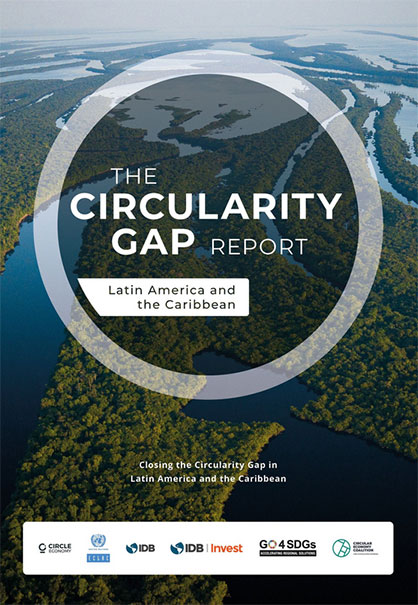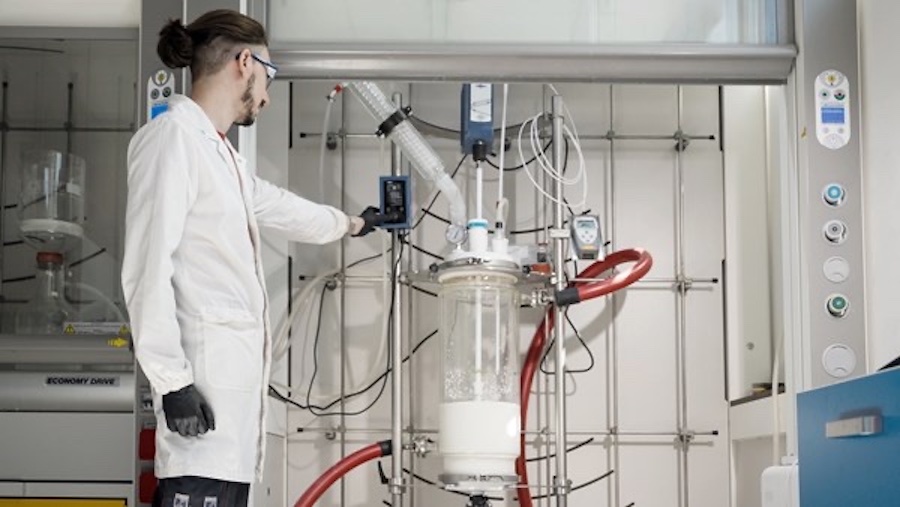#Recycling / Circular Economy
Latin America exports 40% of its extracted resources at the cost of environmental degradation, new study finds
The Circularity Gap Report Latin America and the Caribbean, commissioned by international development bodies* and authored by Circle Economy Foundation, explores how materials are extracted, used and cycled in the LAC region. The report also estimates the potential impact of circular economy strategies in improving the region’s environmental health, reducing carbon emissions, and creating jobs.
According to the report, LAC countries supply over 11% of the world's raw materials despite representing only 8.3% of the world's population. The region consumes, on average, 12.4 tonnes of materials per person per year, which includes biological matter, fossil fuels, metals and non-metallic materials. This is on par with the global average of 12.2 tonnes but far less than many European countries. Switzerland, for example, consumes 19 tonnes of materials per capita, while Sweden uses a whopping 25 tonnes.
The study warns that overconsumption in wealthy countries has damaged the region’s local environment. LAC is the largest net food exporting region worldwide, producing almost a quarter of all meat consumed globally. However, this drives deforestation, resulting in greenhouse gas (GHG) emissions and biodiversity loss. What’s more, current agricultural practices damage pollinators and soil health, threatening the sector’s long-term resilience.
The report calculated that out of all materials consumed in local economies, less than 1% make it back into use in the form of reused and recycled materials. However, reliable calculations are challenging as up to two-thirds of waste in the region isn’t tracked by official statistics. Other data gaps are also prevalent, allowing for illegal landfilling and pollution, and preventing local governments from effectively monitoring waste streams. The report highlights the importance of rigorous waste and material tracking and its reflection in official accounts.
Local governments are also encouraged to recognise the value of circular economy principles, such as regenerative farming, reducing industrial waste and renovating old buildings instead of building new ones. Implementing circular economy strategies in just two sectors—Agrifood and Manufacturing—can cut LAC’s material and carbon footprints by one-third each, ensuring a healthier environment and a safer climate.
The study also estimates that around 8.8 million new formal jobs could be created if the region transitions to a circular economy. In this way, informal jobs could be transitioned to formal employment. Examples of new occupations include recycling facility workers, repair and maintenance operatives, public transport operatives, logistics managers, urban planners, and biotechnicians. The successful implementation of circular strategies can bring other socioeconomic benefits, such as improved health and well-being, and decent work. However, to harness its full potential, the transition to a circular economy must be just and inclusive by design.

*The Circularity Gap Report Latin America and the Caribbean was commissioned by IDB, IDB Invest, ECLAC, UNIDO, UNEP’s initiative Global Opportunities for the Sustainable Development Goals GO4SDGs, the Circular Economy Coalition for Latin America and the Caribbean and authored by Circle Economy Foundation. Read the full Circularity Gap Report Latin America and the Caribbean here:
https://www.circularity-gap.world/lac
















